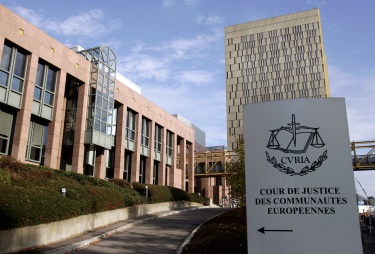Opinion of Advocate General Szpunar on deportation of foreign criminals draws media attention
Last week's Court of Justice of the European Union's opinion in the joined cases of Marin v Administración del Estado and CS v Secretary of State for the Home Department gathered plenty of media attention as Advocate General Maciej Szpunar ruled a Moroccan mother with a British-born son cannot be deported solely because she has a criminal record.
 It was reported here in the Guardian, here in the Telegraph, here in the Times, here in the Independent, and here in the Daily Mail.
It was reported here in the Guardian, here in the Telegraph, here in the Times, here in the Independent, and here in the Daily Mail.
EIN members can read the full opinion here.
The Times called the Court's opinion a "significant blow" to UK efforts to deport foreign criminals at the end of their sentence.
The Supreme Court in Spain and the Upper Tribunal (Immigration and Asylum Chamber) had asked the Court of Justice what effect a criminal record may have on the recognition of a right of residence under EU law, with the UK case involving a woman referred to as CS who is the mother of a son of British nationality who lives with her in the UK and of whom she has sole care and control.
According to the Guardian, the opinion said that while, in principle, deportation in such cases was contrary to EU law, Advocate General Szpunar agreed with UK representations that there should be exceptional circumstances when a convicted criminal could still be deported depending on the seriousness of the offences involved.
A Court of Justice press release stated that the Advocate General "concludes therefrom that it is contrary to the FEU Treaty for national legislation to require the automatic refusal of a residence permit for a third-country national, the parent of minor children who are citizens of the EU and of whom the parent has sole care and custody, on the grounds of the parent's criminal record, when the consequence of such a refusal is that the children will have to leave the territory of the EU."
The press release continued: "[T]he Advocate General has examined the public policy or public security exception invoked by the United Kingdom in order to justify the decision to deport CS. According to that decision, CS's serious criminal offence represented an obvious threat to the preservation of that Member State's social cohesion and of the values of its society, which is a legitimate interest. The Advocate General considers that expulsion is, in principle, contrary to EU law but that, in exceptional circumstances, such a measure may be adopted, provided that it observes the principle of proportionality and is based on the conduct of the person concerned (conduct that must constitute a genuine, present and sufficiently serious threat affecting one of the fundamental interests of society) and on imperative reasons relating to public security."
On Friday, Conservative MP Philip Davies used Parliamentary privilege in the House of Commons to reveal the name of the Moroccan woman, the Independent reported.
The woman's criminal record resulted from her being caught attempting to smuggle a Sim card into prison during a visit.